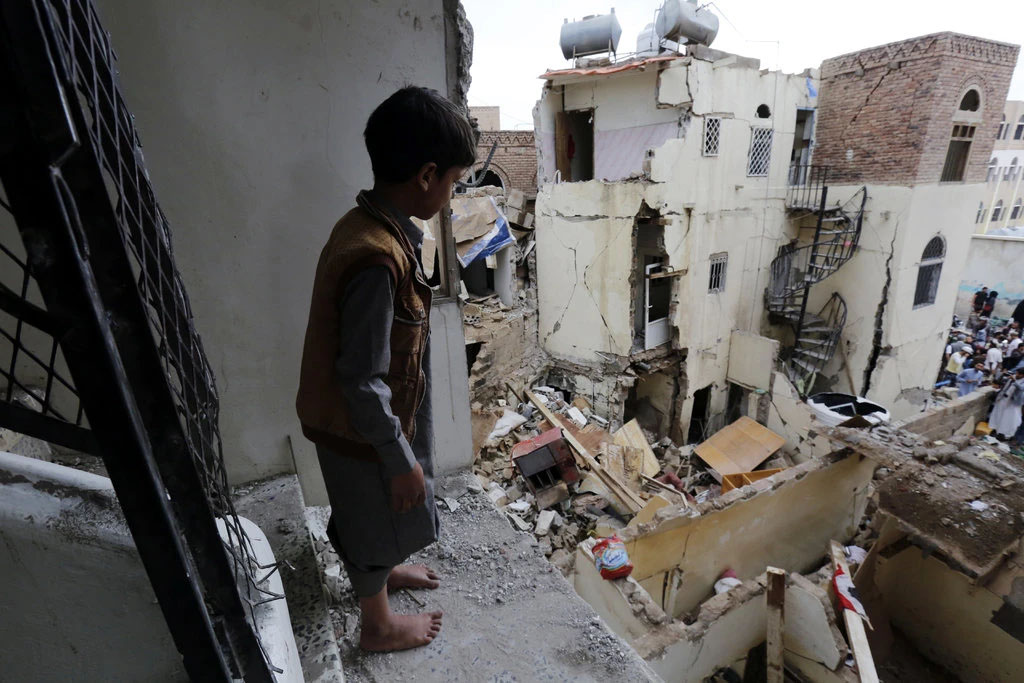Qatar has long called for a peaceful resolution to the war in Yemen, in accordance with UN charters.
Yemen’s UN-backed ceasefire expired on Sunday after warring sides failed to negotiate another extension despite global calls, including by the Arab League.
The truce initially came into effect on 2 April for two months before it was renewed several times until October. The ceasefire resulted in the calmest period Yemen has witnessed in years since the start of the brutal war.
On Sunday, the Arab League’s Secretary General Ahmed Aboul Gheit had warned that the failure to extend the ceasefire will reverse all the progress Yemen made throughout the lull in fighting.
Aboul Gheit also called on “the Houthi side to uphold the interest of Yemen and to engage positively with efforts aimed at extending the humanitarian truce in order to alleviate the difficult reality”.
“The previous truce – despite repeated Houthi violations – allowed the Yemeni people to catch their breath, contributed to a decrease in violence and made it easier for the international community to provide aid,” said the Arab bloc’s official.
Since 2014, Yemen has been devastated by conflict between Iran-backed Houthi rebels and the Saudi-led coalition, which backs the internationally-recognised government.
The UN previously said that the ceasefire led to a 60% decrease in civilian casualties and almost 50% drop in displacements across the war-torn country.
Rights groups and international organisations have also expressed their disappointment in the failure to extend the ceasefire, warning of the implications of the absence of peace in Yemen.
Erin Hutchinson, the Norwegian Refugee Council’s Country Director in Yemen, said that the decision to not extend the ceasefire “is a missed opportunity” in protecting Yemeni civilians from bloodshed.
“We call on the parties to the conflict to reconsider, refrain from pulling the trigger, put aside their differences, and extend the arm of diplomacy as they have done successfully for the last six months,” said Hutchinson.
Yemen’s Foreign Minister Ahmed Bin Mubarak blamed the Houthis for ending the ceasefire, saying his internationally-backed government “made many concessions to extend the truce”.
The Houthi rebels argued on Sunday that the truce reached a “dead-end”.
Ceasefire’s achievements
While several breaches were recorded throughout the ceasefire, a halt in violence managed to aid the return of flights and fuel shipments to the conflict-ridden country.
A key achievement of the ceasefire was the reopening of direct flights between Sanaa, Amman, and Cairo. The UN said there were 36 round-trip flights between the cities, enabling families to reunite for the first time in years.
Under another provision of the ceasefire, 18 fuel vessels were allowed to enter the Houthi-controlled port of Hodeida, allowing hospitals and businesses to receive fuel and medical aid.
At least 26 fuel shipments entered the Hodeida port during the ceasefire. However, there was barely progress in lifting the Houthi blockade on Yemen’s third largest city of Taiz.
Throughout the war in Yemen, more than 150,000 people have been killed, per data gathered by the Armed Conflict Location and Event Data Project.
The war in Yemen has created the world’s worst humanitarian crisis, where more than 14 million people – 80% of the population – are in acute need of humanitarian assistance.
More than three million people have also been displaced.
Qatar has long called for a peaceful resolution to the war in Yemen, in accordance with UN charters, especially Resolution 2216.
“In Yemen, we see a glimmer of hope in the parties’ consensus on a temporary truce, and we are looking forward to a comprehensive and permanent ceasefire in preparation for negotiations between the Yemeni parties,” Qatar’s Amir Sheikh Tamim bin Hamad Al Thani told the UN last month.







